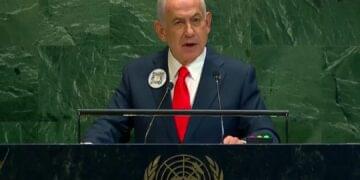Last Friday, Nigeria’s ruling elite abandoned the cries of the people to converge at Sultan Bello Mosque, Kaduna. At the center of this gathering was not a national security meeting, nor a council on how to end the daily killings. It was the wedding of Senator Abdul’Aziz Yari’s son.
Present at this spectacle were President Bola Ahmed Tinubu, Vice President Kashim Shettima, the National Security Adviser Mallam Nuhu Ribadu, Senate President Godswill Akpabio, Speaker of the House of Representatives Tajudeen Abbas, state governors, ministers, and countless lawmakers. The entire ruling class, united in celebration.
But Senator Yari hails from Zamfara State, a state ravaged daily by bloodshed. Villages are torched, women are violated, children are orphaned, and thousands live in displacement camps. Zamfara has become a graveyard of broken promises, a land where the poor bury their loved ones almost every week. Yet, when it came time for celebration, the so-called leaders could not set foot in Zamfara. They fled to Kaduna, admitting silently that Zamfara is unfit for their own comfort and safety.
This is not just hypocrisy—it is mockery. While innocent citizens in Zamfara scream for protection, their leaders gather in luxury, trading smiles and handshakes under chandeliers. The same government that cannot guarantee the safety of farmers in their fields or children in their schools somehow managed to deploy full security to protect convoys and dignitaries at a politician’s wedding.
What clearer evidence of failed leadership can there be? If Zamfara is too dangerous for a senator’s son’s wedding, why is it acceptable for ordinary citizens to live there unprotected? If the president, vice president, and security chiefs can celebrate in peace, why can’t they guarantee the same peace to the people they swore to serve?
This wedding was not an innocent family affair—it was a declaration. A declaration that those in power value their own comfort over the lives of citizens. A declaration that while the masses bury their dead, leaders will dance. A declaration that the cries of Zamfara do not matter, so long as the elite can celebrate in safety elsewhere.
History will not forget this insult. Posterity will record that while Zamfara bled, its leaders fled. That while women and children suffered, the ruling class feasted. And that when Nigerians looked to their leaders for compassion, they were met instead with arrogance dressed in agbada.
The people of Zamfara—and indeed all Nigerians—deserve better than leaders who abandon their roots in times of crisis. They deserve leaders who bring solutions, not convoys of guests. Until then, Sultan Bello’s echoes of music and merriment will remain a hollow sound, drowned by the wails from Zamfara’s broken villages.




































